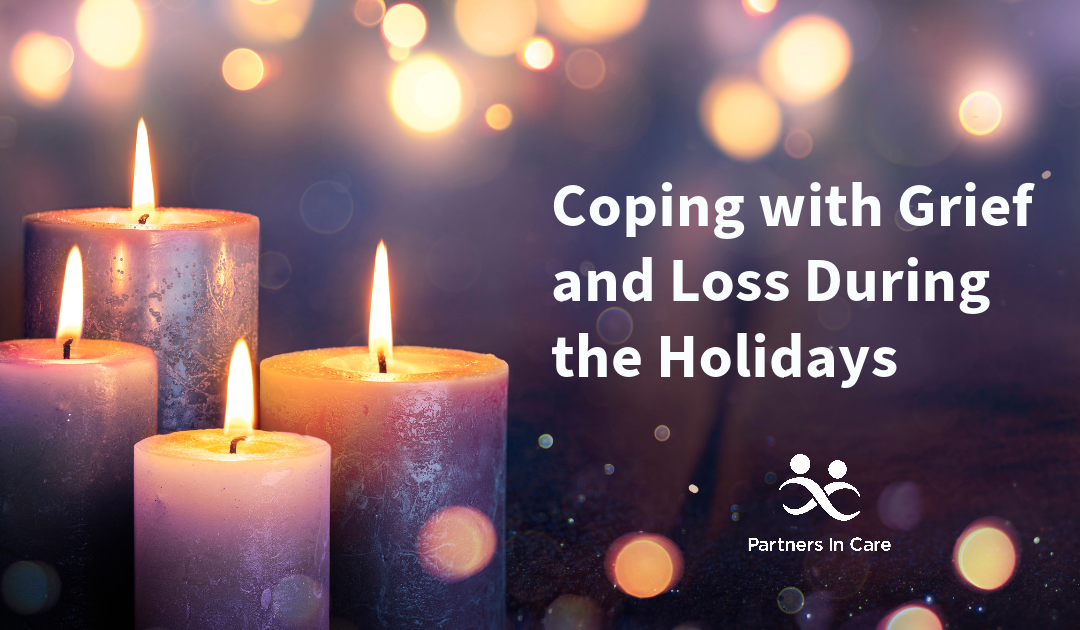The holiday season, often portrayed as a time of joy and family gatherings, can be particularly challenging for those who are coping with grief and loss. It’s a period when the absence of loved ones is felt more acutely, and the usual festivities can seem overwhelming or even painful. Below we explore strategies and insights to help navigate these difficult times, offering support and understanding to those who are grieving.
Navigating the Holiday Season While Grieving
Grieving during the holidays can bring a unique set of challenges. The stark contrast between your inner turmoil and the external festivities can amplify feelings of sadness, loneliness, and isolation. It’s important to acknowledge that these emotional reactions are normal and valid. Remember, there’s no right or wrong way to experience grief. Everyone’s journey is personal and unique.
While it might be tempting to skip the holidays altogether, embracing new traditions can be a healing way to honor your loved one’s memory. This doesn’t mean forgetting the old ways, but rather finding a balance that feels right for you. Consider creating a special ritual to remember your loved one, such as lighting a candle in their honor or sharing favorite memories with family and friends.
Finding Support and Connection
It’s crucial to not go through this journey of complicated grief alone. Reach out to friends, family members, or grief support groups who can offer a listening ear and understanding heart. Remember, asking for help is a sign of strength, not weakness.
If your grief feels overwhelming, consider seeking grief counseling from a professional mental health therapist or counselor. They can provide valuable guidance and coping strategies tailored to your specific needs.
Taking Care of Yourself
Self-care is vital when coping with the stages of grief, especially during the holidays. This can include anything from ensuring you get enough rest to engaging in daily activities that bring you joy or comfort. Listen to your body and give yourself permission to step back from holiday activities if you need to.
It’s okay to say no to events or gatherings that feel too difficult. Setting boundaries is a way of honoring your needs and giving yourself space to grieve in your own way.
Remembering Your Loved One
Finding ways to remember and honor your loved one can bring comfort. This could be as simple as sharing stories about them, playing their favorite music, or donating to a cause they cared about.
Rituals, whether religious, cultural, or personal, can provide a sense of connection and continuity. Consider incorporating meaningful rituals into your holiday that help you feel connected to your loved one.
Moving Forward with Hope
While unresolved grief can feel all-consuming, it’s important to hold onto hope. Healing doesn’t mean forgetting your loved one; it means finding ways to carry their memory with you as you move forward in daily life.
Look for moments of joy, no matter how small. It could be a beautiful sunset, laughter with family, or a kind gesture from a friend. These moments can provide brief respite and remind you that joy and grief can coexist.

10 Strategies for Coping with Grief During the Holidays
Coping with the grief process during the holiday season can be particularly challenging, as this time often emphasizes togetherness and celebration. Here are 10 strategies that may help in managing these difficult emotions:
1. Acknowledge Your Feelings: It’s important to recognize and accept your feelings of grief and loss. It’s okay to feel sad, angry, or overwhelmed during a time that is generally associated with joy and celebration.
2. Create New Traditions: While maintaining old traditions can sometimes amplify feelings of loss, creating new ones can offer a way to honor your loved one while adapting to their absence. This could be as simple as lighting a candle in their memory or visiting their favorite place.
3. Seek Support: Reach out to friends, family, or support groups who can provide empathy and understanding. Sometimes, just knowing that you’re not alone in your grief experience can be comforting.
4. Set Realistic Expectations: Give yourself permission to not have a “perfect” holiday season. It’s okay if you don’t have the energy or desire to participate in every holiday activity or tradition.
5. Take Care of Yourself: Engage in activities that nourish you physically, emotionally, and mentally. This might include exercise, meditation, reading, or spending time in nature.
6. Limit Obligations: Feel free to say no to events or gatherings that feel too overwhelming. It’s important to set boundaries and prioritize your own well-being.
7. Honor Your Loved One: Find a special way to remember and honor the person you have lost. This could involve sharing stories about them, looking through photo albums, or playing their favorite music.
8. Seek Professional Help if Needed: If your grief feels too heavy to carry alone, consider seeking the help of a therapist or counselor who specializes in grief.
9. Find Joy in Memories: Allow yourself to remember and cherish the happy times you had with your loved one. Recalling these memories can bring a sense of comfort and connection.
10. Look for New Sources of Joy: While it’s important to honor your grief, also try to be open to new experiences and sources of happiness. This could be forming new friendships, adopting a pet, or starting a new hobby.
Remember, there is no right or wrong way to experience grief during the holidays. Be gentle with yourself and allow your grieving process to unfold in its own time and way.
At Partners In Care, our professional grief counselors support adults and children with compassionate care during times of loss. We offer complimentary bereavement support groups and, during the holiday season we offer support groups to specifically address this topic. Contact our team at (541) 382-5882 if you need support.

